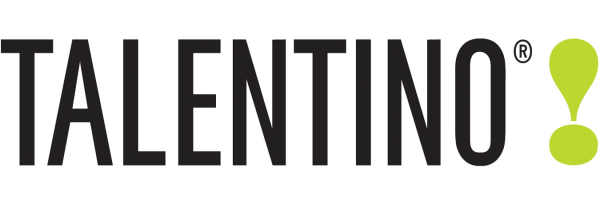
Talentino is a career development company for special schools and the strategic partner for Special Educational Needs and Disabilities (SEND) for The Careers & Enterprise Company. Talentino works across England, training school staff to run effective careers programmes. It also runs early career development programmes for young people with learning difficulties and hosts a range of professional development activities including an annual conference.
JENNY CONNICK, FOUNDER
SEND: WHO ARE WE TALKING ABOUT?
There are currently over 1.2 million young people in England (15 per cent) with Special Educational Needs (SEN), with approximately 250,000 having a statement of SEN or an Education, Health and Care (EHC) plan. Students with SEND are educated in a range of different settings, including special schools, virtual schools and Pupil Referral Units, but the majority will be found in mainstream schools. These young people are often described as a homogenous group, but each person with SEND is very different from the next. It follows that their early career development and potential career outcomes may look different too, but this does not mean we should have lower levels of aspiration on their behalf.
For those who work regularly with young people with SEND, it can be useful to consider how to best articulate the key information about the students you work with to colleagues and external stakeholders. This is particularly important within the context of career guidance, as partnerships are critical. For example, you will need to build the knowledge and confidence of employers to ensure the best experience for your students as part of Gatsby Benchmark 5: Encounters with Employers and Employees and Benchmark 6: Experiences of Workplaces.
The Government’s SEND Code of Practice can be a useful tool for these discussions. The Code of Practice identifies four broad areas of need and support:
- Communication and interaction, such as speech, language and communication needs or Autistic Spectrum Disorder (ASD)
- Cognition and learning, such as a specific learning difficulty, moderate or severe learning difficulties or profound and multiple learning difficulties
- Social, Emotional, and Mental Health (SEMH)
- Sensory and/or physical, such as visual impairment, hearing impairment, multisensory impairment and physical disability
It is very common for a young person with SEND to have a combination of needs from across these four areas, or other additional needs. It can be a complex picture for the individual, their families and carers.
When planning and communicating your careers programme it is, of course, also important to think about the full spectrum of students who are in the most vulnerable and disadvantaged situations. For example, there are 800,000 young carers in England and 1.5 million children that suffer abuse or neglect. Extensive support will be needed for these young people to ensure positive career and life outcomes.

Students from Brookfields School engaged in classroom-based career coaching sessions
THE BENCHMARKS
The application of the Gatsby Benchmarks has huge relevance for all young people, including young people with SEND. Working in education, you will be used to adapting and shaping things for your students. Designing and delivering a careers programme using the Benchmarks is no different. For example, from our work with special schools we have heard that Benchmark 2: Learning from Career and Labour Market Information, and Benchmark 8: Personal Guidance, need careful consideration and can be challenging, but with sensitive interpretation they are achievable.
PLANNING FOR DIFFERENT PROGRESSION PATHWAYS
Level 2 qualifications, particularly in English and maths, tend to be expected for entry to many careers. Therefore, an early stage of the career development process for students with SEND can involve considering, together with the student and their parents and carers, the likelihood of the student being able to take GCSEs or equivalent Level 2 qualifications. If this is very likely, students will be able to follow the same progression pathways as their peers without SEND, such as further and higher education, and employment. If progressing through a Level 2 qualification is less likely, students can still have a positive career outcome, but their progression pathway is likely to be different. For example, students with EHC plans can access supported internships, inclusive internships and supported employment. Many students with SEND may face significant barriers along their career journey. However, through good preparation and building trust and support with employers, families and carers, these barriers can be minimised.
To ensure students access a positive career outcome focussed on their strengths, some aspects of their career development will be the same as for other students, some aspects will need to be delivered differently, and some will only be relevant for students with SEND. This idea of ‘same and different’ is something Talentino has developed extensively through our work in special and mainstream schools. You can encourage all stakeholders, including non-experts, to contribute to the early career development of young people with SEND. Through the framework of the Gatsby Benchmarks, you can work together with each young person and their parents and carers to set objectives, minimise barriers and support them effectively towards a positive career outcome.

